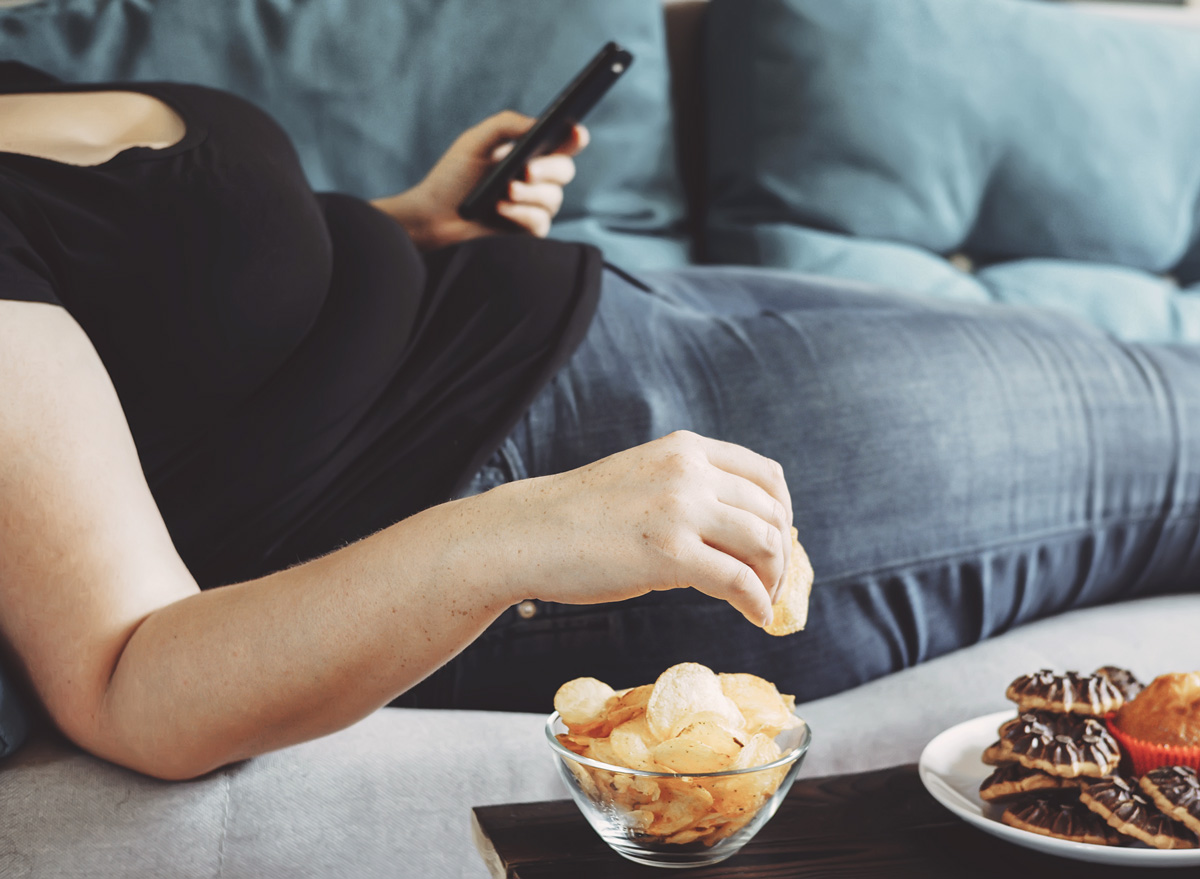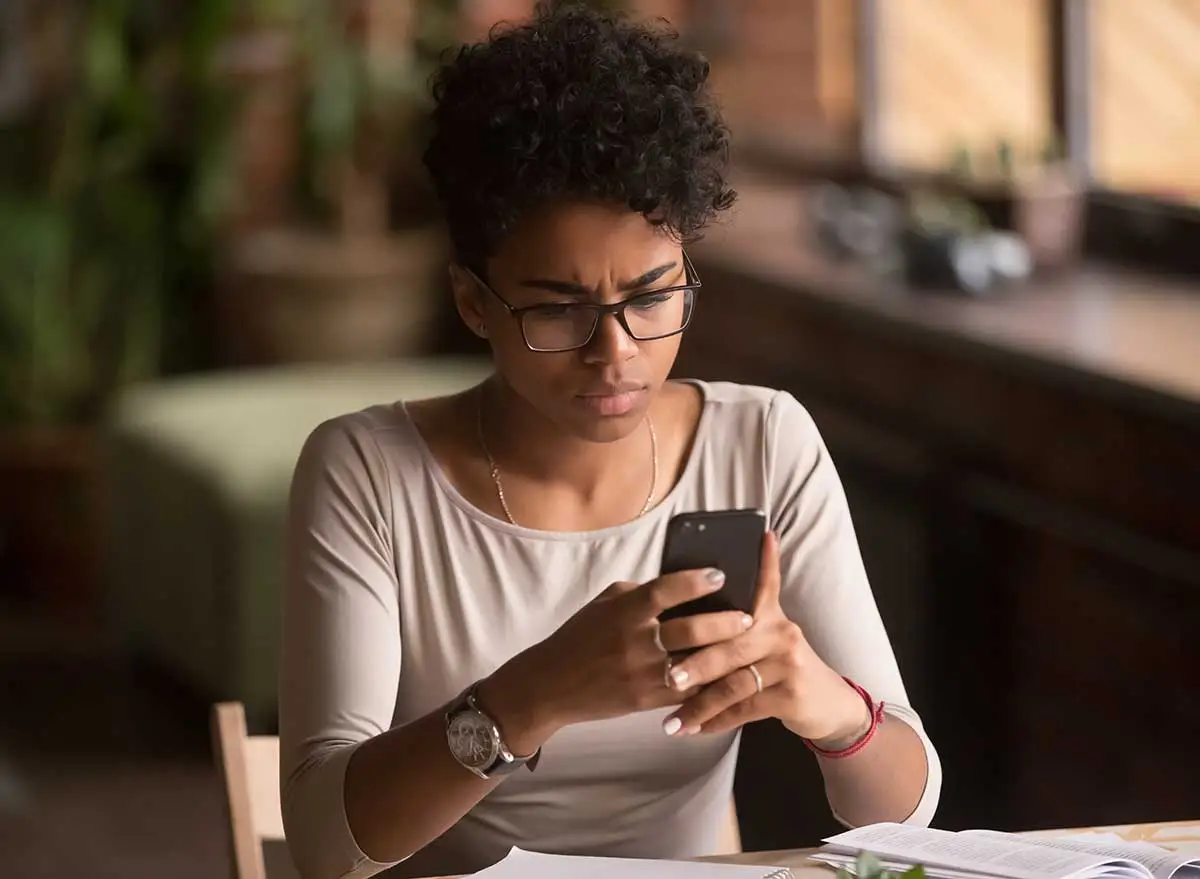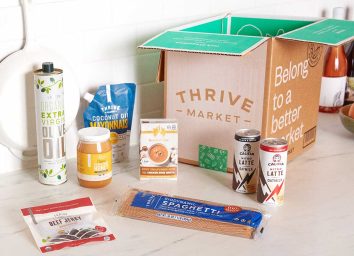The 9 Worst Health Habits to Have During the Coronavirus Pandemic

Investing in your personal health is of utmost importance always, but even more so during the pandemic.
However, there are several behaviors you could be regularly exhibiting that are hindering your body’s immune system or sabotaging your mental or physical health. Between research and consulting health experts, we pulled together a list of nine of the worst health habits you could be doing right now during the coronavirus pandemic.
Stay healthy and sane by breaking these unhealthful habits now.
READ MORE: Click here for all of our latest coronavirus coverage.
Staying Indoors.

Watching countless episodes on Netflix, Hulu, and HBO is beneficial for your mental health to some extent, but if you’re becoming a hermit and not leaving the house to go for a walk or a jog that could become problematic over time.
“There are few reasons to leave the house these days,” says Ashley Kitchens, MPH, RD, LDN. “Spending most of your time indoors limits sunlight exposure, which is thought to boost your mood and promote feelings of calm and focus, which we all need right about now.”
Grab your cloth mask and hit the trail for a 30-minute power walk!
Staying sedentary.

Being sedentary goes hand-in-hand with staying indoors. Reducing activity levels can pose a threat to your health though, especially if inactivity becomes routine.
“Sitting around all day can increase your risk of health concerns such as cardiovascular disease and type 2 diabetes and it makes it more challenging for your body to fight off infection,” says Kitchens.
Thankfully, there are many at-home workouts you can do during this time to stay active such as streaming a virtual yoga or HIIT class, lifting dumbbell weights, or learning dance moves from a YouTube video.
Smoking habitually.

Current preliminary research is suggesting that those who smoke cigarettes are more susceptible to suffering from adverse complications of COVID-19. It largely has to do with something in your lungs called the ACE2 receptor. This protein is embedded in the surfaces of cells scattered across the body, but COVID-19 specifically targets the ones that are located in the upper and lower respiratory tracts.
COVID-19, also known as SARS-CoV-2, plugs into this receptor and injects genetic material into those cells it inhabits. This is how the disease replicates and then spreads in the body. A recent study, which was posted to the preprint database bioRxiv, speculates that lungs exposed to cigarette smoke could accumulate an excessive number of these receptors.
As a result, the lungs could be more prone to damage by COVID-19. Keep in mind the study was just posted on March 31 and has yet to be peer-reviewed, so whether or not there is a direct link between smoking and adverse complications with COVID-19 will require more research.
Impulsively eating.

For those who are fortunate enough to work from home during this time, the urge to snack constantly may be incessant.
“Working very close to your kitchen comes with challenges,” says Kitchens. “Eating with distraction, mindlessly eating, or eating out of boredom can lead to poor food choices, weight gain, and feelings of dissatisfaction.”
Try and resist those snacking temptations by regularly drinking water or even having a cup of herbal tea between meals.
Eating a lot of processed foods.

Believe it or not, those comfort foods you cannot seem to get enough of during this could actually be suppressing your immune function, hindering your body’s ability to fend off infection.
“Alcohol and processed foods that are high in sugar and fat can affect your immune system,” says Dr. Purvi Parikh, an immunologist with Allergy & Asthma Network. “These foods increase inflammation and make it difficult to fight infections. Also, from data in NYC, the three conditions with the worst outcomes [and] death were obesity, diabetes, and heart disease—all of which can occur due to poor diet.”
Adopting a predominantly plant-based diet is more important now than ever.
Increasing time spent in front of a screen.

Has anyone else been watching their estimated screen time increase each week of the mandated quarantine? Don’t worry us, too. However, it could be affecting the quality of your sleep. Here’s how.
“Since there’s nowhere to go in the evenings, you may be spending more time in front of a screen, especially at night,” says Kitchens. “This comes with increased exposure to blue light, which can disrupt your sleep cycle, make for a restless night’s sleep, and cause you to be more tired the next day. A good night’s sleep is a very important part of health.”
Sleep and immunity are directly correlated. The Sleep Foundation says that chronic sleep loss can make a flu vaccine less effective, as it impairs your body’s ability to produce sufficient antibodies.
Comparing yourself to others on social media.

There are many people who are using this extra time at home to get in amazing shape, redecorate the house, or dive into personal projects. Conversely, there are also people who are just focusing on surviving during this difficult time. No matter which motivation you identify with most, seeing what others post on social media can be triggering.
“Comparing yourself to what other people are doing on social media can cause you to discount or question what you’re already doing and make you feel guilty that you aren’t doing enough during the quarantine,” says Kitchens.
If just making it through the day is all that you can muster during this time, that is completely fine. You’re not expected to go up and beyond during a traumatic time such as this one.
Not getting enough vitamin D.

In Europe, preliminary research from a study that has yet to be peer-reviewed suggests that low levels of vitamin D were associated with a higher risk of mortality from COVID-19. In the preliminary report, the researchers said, “The most vulnerable group of [the] population for COVID-19 is also the one that has the most deficit in vitamin D.”
Another recent study also supports the link between low vitamin D levels and a high mortality rate from COVID-19. France, Italy, and Spain are among the countries with the highest mortality rates and the lowest average vitamin D levels. There are several health benefits of vitamin D but D3, in particular, is the one that’s thought to be most effective at raising vitamin D levels. The body naturally produces vitamin D3 from being out in the sun, but most people are also in need of a supplement to get healthy doses of the vitamin.
Not creating time for yourself.

Now is the time to open up that book you’ve been meaning to read and try those new healthy recipes you have bookmarked in your phone. Practicing self-care is extremely important right now.
“If you’re cooped up with other people can be great quality time but it’s important to find time for yourself so you can recharge and decompress,” says Kitchens.








